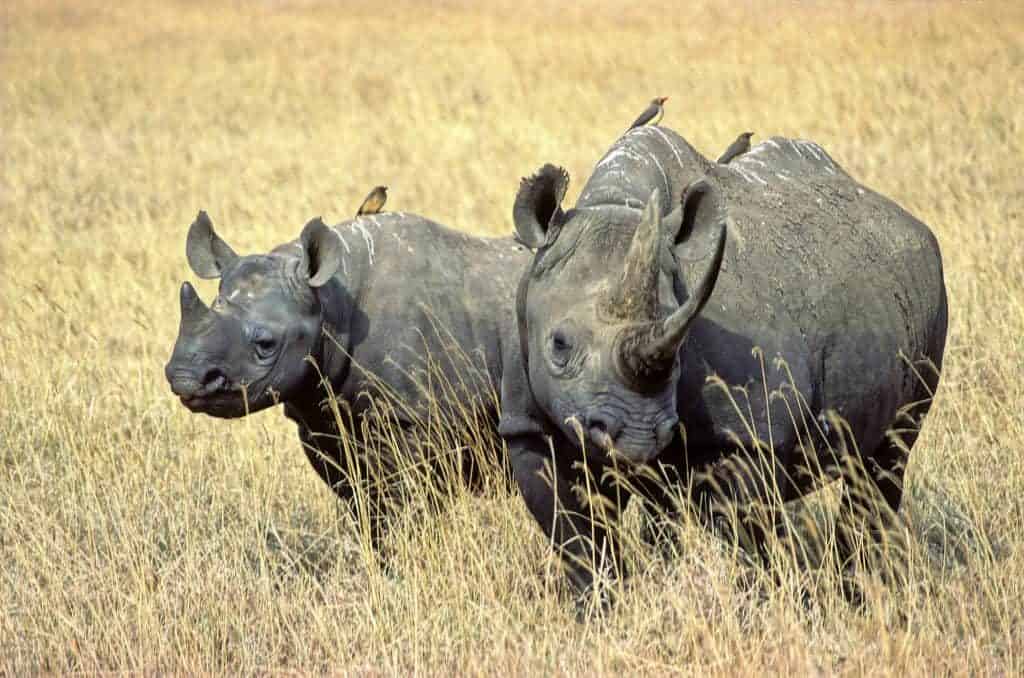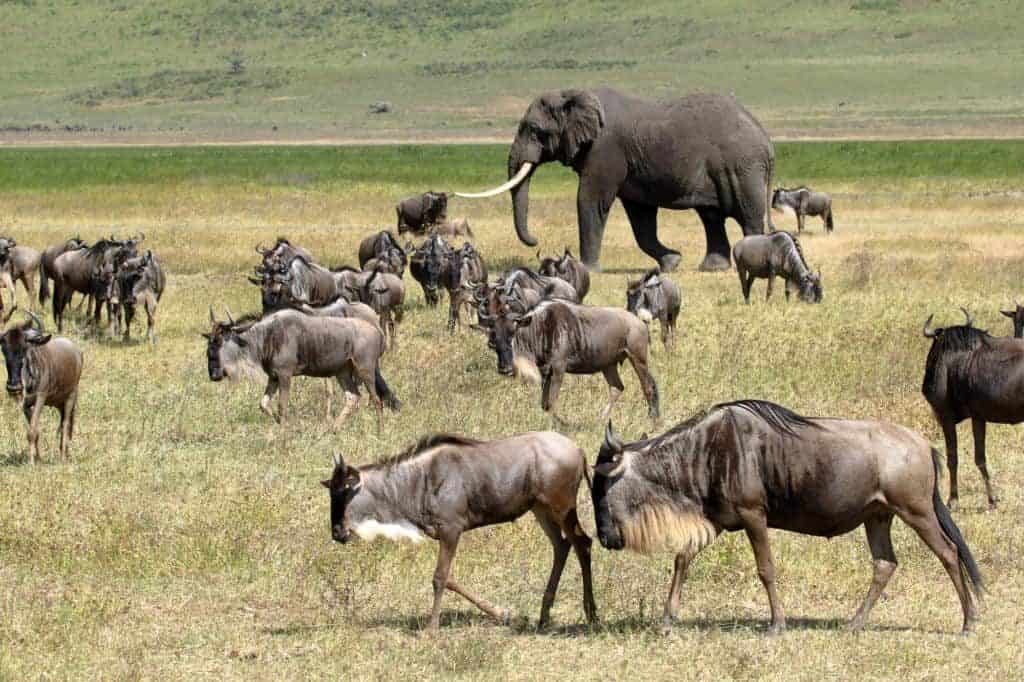This Earth Day is a critical reminder of the urgent need to protect all of our species around the world. The Earth Day Network reminds us that “Nature’s gifts to our planet are the millions of species that we know and love, and many more that remain to be discovered. Unfortunately, human beings have irrevocably upset the balance of nature and, as a result, the world is facing the greatest rate of extinction since we lost the dinosaurs more than 60 million years ago.” The global destruction and rapid reduction of wildlife species are directly linked to human activity including poaching, climate change, and deforestation.
The impact is far-reaching and has deep and lasting effects on wildlife. But, Above Safaris believes that each of us can play an important role in changing the future of wildlife around the world. This Earth Day, and every day, we are excited to unite with organizations protecting wildlife in their local and global communities, and provide a way we can all help to protect our species.
Meet Above Safaris
Above Safaris creates tailor-made adventures in Tanzania that are grounded in responsibility, sustainability, and community innovation. This Earth Day, we urge adventurers around the world to consider how their actions can help protect our species. By protecting the wildlife of Tanzania, we are preserving an essential part of what makes Tanzania extraordinary. Our wildlife plays a vital role in the Tanzanian ecology, and the environmental future of the world. Responsible and sustainable travel allows adventurers to take action by supporting conservation efforts, creating opportunities for local people, and limiting environmental impact.
Thousands of different species call Tanzania home. With 17 National Parks and 20% of Africa’s massive mammal population, Tanzania is the prime game viewing country in the world. It is also home to one of the most extraordinary wildlife experiences in the world, The Great Migration. There is an urgent and essential need to protect the wildlife of Tanzania, who face issues like poaching, trophy hunting, and environmental degradation.Black rhinos, elephants, and wildebeests are a few of the extraordinary species that live in Tanzania. To celebrate Earth Day, we want to highlight the dangers these species face, and demonstrate steps to protect them.
Black rhinos, elephants, and wildebeests are a few of the extraordinary species that live in Tanzania. To celebrate Earth Day, we want to highlight the dangers these species face, and demonstrate steps to protect them.
Black Rhino:

Also known as hook-lipped rhinos, this species is native to eastern and southern Africa—with most black rhinos living in Tanzania. Although it is referred to as black, its colors vary from brown to grey. Having poor eyesight but excellent hearing, black rhinos also have a strong sense of smell that allows them to make sense of their surroundings. They can be aggressive and will charge at anything that scares them.
The black rhino is a critically endangered species, with approximately 5,000 remaining in Africa. For most of the twentieth century, the black rhino was the most numerous of all rhino species but in 2011, the International Union for Conservation of Nature declared three subspecies of black rhinos extinct.
Today, there are many threats against the black rhinos including poaching, habitat changes, and competing species. Illegal poaching remains the main and most detrimental threat. Poachers risk their lives in search of black rhino horns for two main reasons: 1. Belief that the horn contains medicinal value, and 2. Consumers see owning one as a sign of prestige, most commonly in certain Asian countries.
There are economic, environmental, and social benefits to protecting the lives of black rhinos.
- Economic: Black rhinos are a major attraction for tourists which is hugely beneficial for development in Tanzania.
- Environmental: Black rhinos are important to the greater ecosystem. Their grazing plays an important role in maintaining savanna grasslands, supporting many other species. Researchers have discovered that black rhinos lead to greater biodiversity of plants and animals. Further, these grasslands that black rhinos help preserve not only provide food to different species, but they also act as natural carbon sinks—meaning they act as storage lockers for carbon dioxide in the atmosphere.
Social: As black rhinos consume large amounts of food, they help grazer animals such as zebras and wildebeests to easily find food as bushes are cleared.
African Elephants

The world’s largest living land mammal, African elephants live in a variety of habitats as long as there is sufficient water. African elephants have complex social relationships, as matriarchs lead family groups of two to fifty elephants.
Communication is vital to elephants, especially since they rely on their social network for survival. Beside their capacity to learn from watching and mimicking, African elephants possess other human qualities. Compassion is at the heart of African elephants, demonstrated when they care for the wounded and grieve their dead. Their developed sense of memory allows them to remember lost loved ones, hold grudges, and even recognize long-lost friends.
African elephants are a keystone species, meaning they play an essential role in maintaining ecological harmony. Ninety types of tree species depend on the elephant for propagation, and African elephants dig holes which expose underground springs, allowing small animals to have access to water year-round. Tanzania is home to one of Africa’s most significant remaining elephant populations. In 1976 in Tanzania, African elephant numbers stood at 316,000. Due largely to the illegal trade in ivory, the population has drastically decreased to 45,000.
Poaching for ivory elephant tusks and encroaching urban areas are the major threats to African elephants.
Wildebeests
Wildebeests in Tanzania are known for their Great Migration – every year, over two million wildebeests make their way across the plains in search of fresh water and grasslands. During this migration, they travel between 500 and 1,000 miles.
Wildebeests live in large herds consisting of adult males and females and their offspring. By living in herds, wildebeests protect themselves against predators such as lions, hyenas, cheetahs, and African wild dogs. Wildebeests can live for up to twenty years in the wild.
Like elephants, they are a keystone species. This means they are essential for maintaining their surrounding ecosystems and affect many species through their migratory behaviors and grazing. Even though wildebeests are a non-threatened species, they still need protecting. According to the United Nations Environment Programme, wildebeests have become less common in locations where they were largely populated, specifically in southern and eastern Africa. If we do not take action now, this decline will be even more profound in the future.
Protect Our Species
The call this Earth Day to “Protect Our Species” needs to be acted on now more than ever.
Responsible and sustainable travel is a major way that travelers can take action to protect our species. It supports conservation efforts by ensuring rangers can protect the animals in National Parks and Conservation Areas, provides opportunities for local people to be involved in the tourism industry and avoid the financial temptation of activities like poaching(learn more about local solutions to Africa’s poaching problem), and limits environmental impacts that can destroy the natural habitats that these species call home.
Learn more about Above Safaris’ approach to responsible and sustainable travel and see what adventures are possible in Tanzania.








